University of California San Francisco
-
-
Alabama Legislature Passes New Limits on Abortion Clinics
-
Five UCSF Scientists Among Inaugural Fellows Class for American Association for Cancer Research
Five distinguished UCSF scientists, including three Nobel laureates, are being inducted into the prestigious inaugural class of fellows of the American Association for Cancer Research Academy.
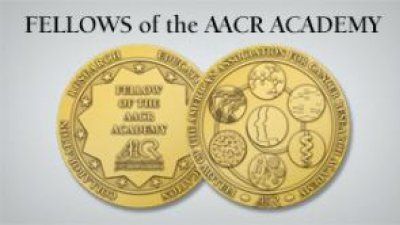
-
Expanding Online Education for Students Worldwide
Higher education is experiencing explosive growth online, and 2013 promises to continue this trend, especially among top-tier universities through Massive Open Online Courses. UCSF is expanding its online learning programs to reach students around the world.

-
Brain Initiative Will Draw on Bay Area
-
Will Cell Therapy Become a 'Third Pillar' of Medicine?
Treating patients with cells may one day become as common as it is now to treat the sick with drugs made from engineered proteins, antibodies or smaller chemicals, according to UC San Francisco researchers who have outlined their vision of cell-based therapeutics as a “third pillar of medicine."

-
Study Points to Possible Path to AIDS Vaccine
-
UC Berkeley, UCSF, Stanford Researchers All In for Obama's Brain-Mapping Initiative
-
Rats Kick Cocaine Addiction With Help Of Lasers Shined On Their Brains
-
UCSF Heart Disease Study To Use Mobile Apps
-
Laser Light Zaps Away Cocaine Addiction
By stimulating one part of the brain with laser light, researchers at the National Institutes of Health and the Ernest Gallo Clinic and Research Center at UCSF have shown that they can wipe away addictive behavior in rats – or conversely turn non-addicted rats into compulsive cocaine seekers.
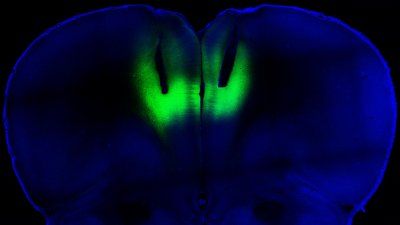
-
Zapping the Brain with Magnets Could Cure Cocaine Addiction
-
BPA May Be Labeled 'Toxicant' by State
-
HealthWatch: Saying ‘No’ To Unnecessary Medical Tests
-
Obama Invests in Brain-Mapping Project
-
UCSF Police Report Theft at Mission Bay Community Center
UCSF Police report that on Wednesday, April 3, 2013, at about 10:50 a.m., a UCSF employee observed a suspect remove her purse from a cubby on the fourth floor of the Bakar Fitness and Recreation Center at the Rutter Center at UCSF Mission Bay.

-
White House BRAIN Initiative Plants Seed for New UCSF Partnership
UCSF has recently partnered with Lawrence Berkeley National Laboratory and UC Berkeley to form the Tri-Institutional Partnership, in an effort to promote collaborative research among the three institutions.
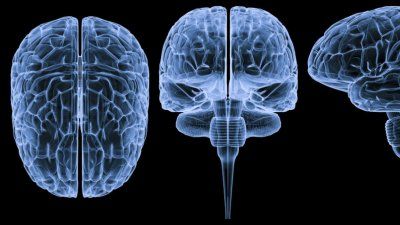
-
President Obama Unveils Brain Mapping Project
President Barack Obama has unveiled a bold public-private initiative to map the brain to gain greater insight on how we think, learn and remember and to better understand and treat diseases ranging from autism to schizophrenia.
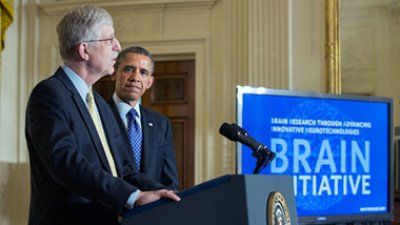
-
UCSF Breaks Ground on Major New Building at Mission Bay
UCSF has broken ground on “Mission Hall,” also known as the Global Health & Clinical Sciences Building, which will be a major new structure on the Mission Bay campus.
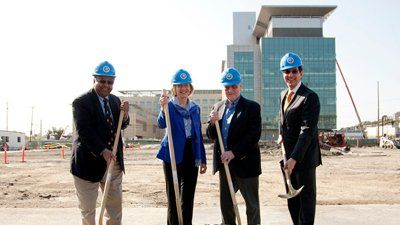
-
Check Kids for High Blood Pressure?
-
Sodium, Hiding in Plain Sight
-
Scientists Discover DNA Damage Occurs as Part of Normal Brain Activity
Scientists at the UCSF-affiliated Gladstone Institutes have discovered that a certain type of DNA damage long thought to be particularly detrimental to brain cells can actually be part of a regular, non-harmful process.

-
Faith Leaders Preach Healthful Living
The Abundant Life Health Ministries Initiative is a partnership between UCSF and nearly 30 churches across the Bay Area to address health disparities of minority populations.

-
Teaching Tolerance One Goal at a Time
By providing scientifically based curriculum at after-school programs, UCSF helps kids learn how to manage their anger while excelling on the field and in the classroom.

-
Dentistry Residents Offer Free Screenings
Through events such as the June dental screenings in Bayview, UCSF School of Dentistry residents, students and faculty reach out to communities to let them know about free access to children's dental care.

-
Greta Schnetzler Named Chief Campus Counsel at UCSF
Greta Schnetzler, JD, a well-respected attorney with extensive experience in higher education, has been named Chief Campus Counsel at UCSF.

-
The Real Limitless Drug Isn’t Just for Lifehackers Anymore
-
California’s Breast Density Notification Law Goes Into Effect
-
Doctors Use Deep Brain Stimulators to Fight Parkinson's Disease
-
Media Advisory: Cell-Based Therapeutics: The Next Generation of Medicine
Scientists at UC San Francisco will host a one day symposium, “Cell-Based Therapeutics: The Next Generation of Medicine,” with some of the nation’s leading clinical and laboratory researchers in stem cell therapy, immunotherapy and bacterial therapeutics.

